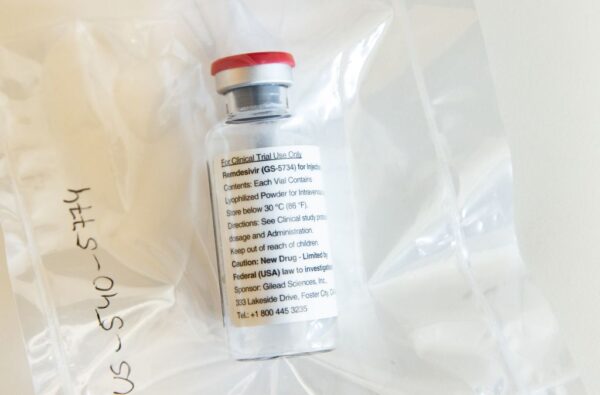
Data from a Phase III study conducted in China to test a Gilead Sciences drug under investigation for Covid-19 were “prematurely” posted on the World Health Organization’s website and then quickly removed, but not before prompting the company to warn against reading too much into them, and an analyst to call the drug’s perceived pandemic role “overestimated.”
The Foster City, California-based biotech company released a statement Thursday, attributed to chief medical officer Merdad Parsey, addressing the release of data from a Phase III study of remdesivir in severely ill Covid-19 patients. The data, he wrote, were posted prematurely and without the permission of the study investigators, and furthermore included “inappropriate characterizations of the study.” He wrote that “trends in the data” suggest a potential benefit for the drug, particularly in patients treated early, though he did not elaborate further on that trend. The data have been submitted for peer review, he added.

The Funding Model for Cancer Innovation is Broken — We Can Fix It
Closing cancer health equity gaps require medical breakthroughs made possible by new funding approaches.
Nevertheless, the data in question, originally reported by the healthcare publication STAT, showed that remdesivir did not produce clinical or virological improvements in patients. Specifically, use of the drug “was not associated with a difference in time to clinical improvement” compared with those on placebo, rate of death at 28 days or time to resolution of SARS-CoV-2 infection.
Shares of Gilead fell 9% on the Nasdaq Thursday afternoon.
The trial was one of two conducted in China that earlier this month were halted due to low enrollment, thanks in part to China’s Covid-19 outbreak being largely brought under control. Originally designed to enroll 452 patients, the trial only enrolled 237 – of whom 158 got the drug, while 79 received placebo. The other study, in patients with mild-to-moderate disease, was to enroll 308 patients, though the actual number is not stated on ClinicalTrials.gov. But unlike the Phase III study Gilead is sponsoring in severe disease, which is designed to enroll up to 6,000 patients, the Chinese severe disease study had a control group, whose participants received placebo on top of standard treatment. Patients in Gilead’s study are receiving remdesivir treatment for five or 10 days.
In his statement, Parsey noted that because the Chinese severe disease study was terminated early, it does not have sufficient statistical power to provide for meaningful interpretation of the data. Indeed, the very wide range of values for the confidence interval on the rate of death at 28 days would appear to indicate a lack of statistical significance.
Still, an investment bank analyst took a dim view, calling the results “pretty close to a worst case scenario.”
“If remdesivir, as an antiviral, can’t even get an antiviral effect, it’s highly unlikely there will be any role, even in earlier stage patients,” wrote Baird analyst Brian Skorney in a note to investors. “We continue to think the market overestimates the role of this drug in the pandemic.”
Parsey added that the company plans to release results at the end of this month for its Phase III study in severe Covid-19 patients. However, Skorney pointed to a placebo-controlled Phase III study sponsored by the National Institute of Allergy and Infectious Diseases, results of which are anticipated in May, as crucial.
In addition to the data temporarily shared on the WHO website, some early results for the drug have already become public. Earlier this month, Gilead announced data from 53 patients with severe disease who received remdesivir under compassionate use protocols, but while the data indicated a treatment effect, it is hard to draw conclusions from them due to the lack of a control group and small sample size. Subsequently, STAT reported on a leaked video in which the lead investigator in the Phase III program discussed early results from more than 100 patients at her center, stating that the drug appeared to be working. But that also came with numerous limitations making them difficult to interpret in a meaningful way, including the small sample size, the lack of a control arm and the fact that it came from a single center.
Photo: Ulrich Perrey, Pool/AFP, Getty Images










